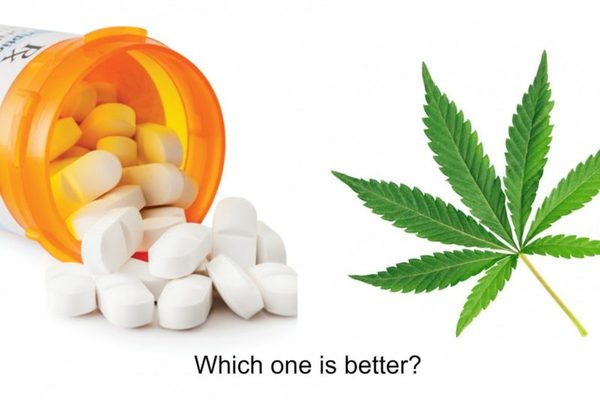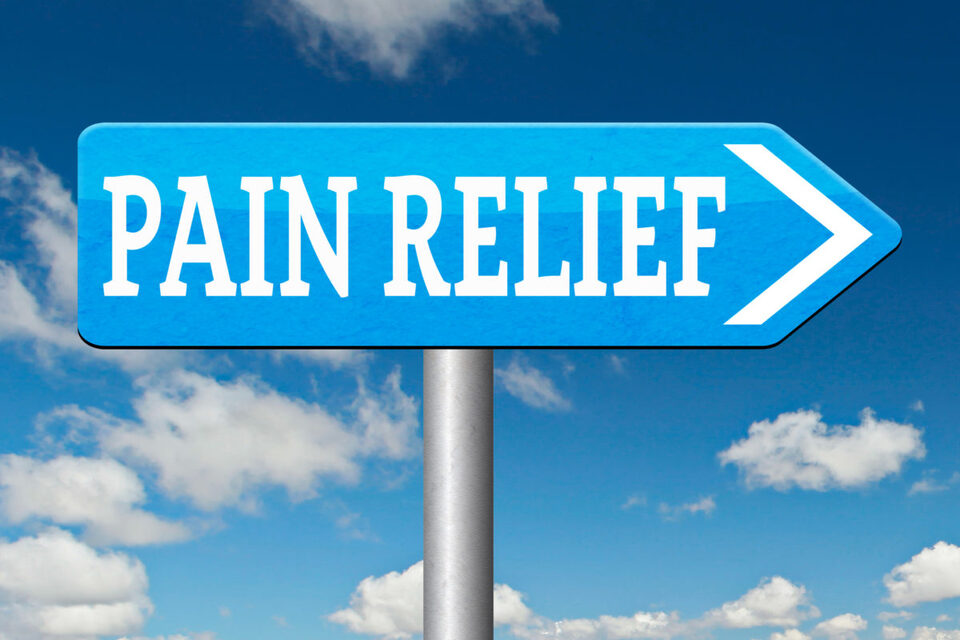
Opioids and the Coronavirus
The use of opioids to treat acute and chronic pain continues to be very controversial because of concerns about addiction. Now, however, other less reported side effects of opioids may pose an even greater hazard due to COVID-19.
Opioids have long been known to suppress immunity. According to one review article published in 1996, “Both therapeutic and chronic uses of opioids compromise the optimal functioning of the immune system. Overwhelming evidence suggests that opioid use affects both innate immunity and adaptive immunity. Chronic administration of opioids decreases the proliferative capacity of macrophage progenitor cells and lymphocytes. Additionally, the differentiated function of immune cells is significantly affected by opioids”. More recent research continues to affirm these effects. That means that patients taking opioids are more likely to get sick when exposed to viruses and bacteria, and they are more likely to experience severe illness when they do get sick.
Opioids also suppress breathing. This is in fact the mechanism of death in an overdose: the person stops breathing. At lower doses, opioids depress breathing both during waking and during sleep, increasing sleep apnea and reducing arterial oxygen saturation. When a patient is experiencing a severe course of COVID-19, the lungs are compromised and breathing becomes extremely difficult. The impact of opioid use during a severe COVID-19 infection could potentially make a life or death difference.
Ironically, when difficulty breathing becomes life-threatening and patients are placed on ventilators, opioids are often administered to help patients deal with the discomfort of being on the ventilator. A NYC study reported that 88% of COVID-19 patients put on ventilators died. Others have reported a death rate of ventilated patients of about 25% but for many patients who were still hospitalized the final outcome was not known.
Marijuana and the Coronavirus
Marijuana does not suppress breathing. In addition, marijuana has immune boosting effects. The cannabinoids found in marijuana and CBD interact with the body’s endocannabinoid system, which has a key role in regulating immune response. CBD and THC can act as immunosuppressants that are helpful in autoimmune diseases while other studies show that regular cannabis use can increase white blood cell counts in immunodeficiency disorders such as HIV, suggesting an immune-boosting effect. These two seemingly paradoxical effects are important for COVID-19, where both viral replication and an overly robust inflammatory response are both factors in illness severity and fatality.
In addition a study published just a few weeks ago found preliminary evidence that cannabis may block COVID-19 infection. So far, this is only a study in a test tube but the results are very promising. They seem to indicate that certain cannabis strains can reduce, by 73 per cent, the number of a type of receptor, ACE2, that the virus uses to enter the cells. This means the chance of getting infected is much lower. From the research so far, it appears that high CBD strains of marijuana are the most effective. The researchers haven’t been able to identify yet what the ideal ratio is of THC to CBD, or even if the active ingredient is CBD or some other component of cannabis or a combination.
Marijuana vs Opioids in Pain Treatment
Opioid Overdose Risks
Most people believe that the most powerful weapons we have against severe pain are opioids like Vicodin, Percocet, Hydrocodone and Oxycodone. But is this really true? It’s an important question because opioids are highly addictive and taking too much can be fatal. Millions of Americans have become addicted to prescription opioids and most have been medical patients taking them as directed. Many of these patients have progressed to using illegal opioids including heroin and fentanyl. Even worse, according to the CDC, more than 500,000 Americans have died of accidental overdoses of these drugs. Yet opioids are still widely prescribed for patients with moderate to severe pain because most patients and doctors believe they are the most effective treatment.
Marijuana is more effective and safer than opioids for pain relief
Mounting evidence indicates that marijuana may be more effective at treating pain than any other available drug, including opioids. Marijuana is certainly safer—it is not physically addictive and there has never been any documented case of death due to marijuana overdose. Marijuana users do not build up tolerance to the drug, (i.e. needing higher doses to achieve the same effect) the way that opioid users do. In fact, marijuana, when used together with opioids, can prevent the development of tolerance and can help opioid users wean off their drugs. States with medical marijuana laws have reduced opioid overdose deaths by an average of 25%.
How marijuana works to relieve pain
Marijuana is the only known plant that contains compounds called cannabinoids. Our bodies naturally make cannabinoids (known as endocannabinoids when our body produces them) to help relieve pain. Dr. Ethan Russo, a neurologist and pharmacologist, who has done research on endocannabinoids, has even proposed that fibromyalgia, an increasingly commonly diagnosed pain disorder that is characterized by widespread pain and fatigue, is caused by endocannabinoid deficiency.
Marijuana has a long history of medicinal use
Marijuana grows wild in all but the coldest climates all around the world and has been used medicinally for treatment of pain and many other disorders for thousands of years. The first written reference to marijuana, also known as cannabis, for treatment of pain was by Chinese Emperor Shen Nung in 2737 BCE. Marijuana was in widespread use in the United States as a medicine until 1941, when anti-marijuana crusader Harry Anslinger, then the commissioner of the Federal Bureau of Narcotics, insisted that it be outlawed.
The research on marijuana for pain relief
A 2011 review of randomized controlled studies of cannabinoids for treatment of chronic, noncancer pain found significant effects on pain relief as well as significant improvements in sleep. Most of the studies were of neuropathic pain, but one study each of fibromyalgia and rheumatoid arthritis also reported positive results. No serious adverse effects were reported.
A 2014 survey by the National Pain Foundation of fibromyalgia patients found that 62% of those who tried marijuana said it was very effective at treating their symptoms, 33% said it helped a little and only 5% said it didn’t help at all.
In a 2015 review of controlled studies of cannabinoids in the treatment of chronic neuropathic pain the authors concluded that cannabinoids provide significant pain relief in chronic neuropathic pain in conditions where other treatments do not work. They found that reported side effects in the reviewed studies were minor.
A survey of 100 consecutive medical marijuana patients who were returning for their annual recertification in Hawaii found that 97% used marijuana primarily for relief of chronic pain. They reported an average 64% decrease in pain—a decrease on a 10-point pain scale from 7.8 to 2.8. Half also reported relief from stress and anxiety; 45% reported insomnia relief; and 71% reported no negative side effects. No serious adverse effects were reported. Some of the patients reported they were able to reduce or eliminate their use of opioids.
A 2017 literature review by the National Academies of Science, Engineering and Medicine found that patients who were treated with cannabis or cannabinoids were more likely to experience a significant reduction in pain symptoms.
Conclusion
The additional risks posed by the use of opioids during the COVID-19 pandemic add to the already compelling argument that marijuana should be the preferred choice for pain relief.
Don't Miss Out on Important Pain News
Sign Up For Our Newsletter Here











Comments